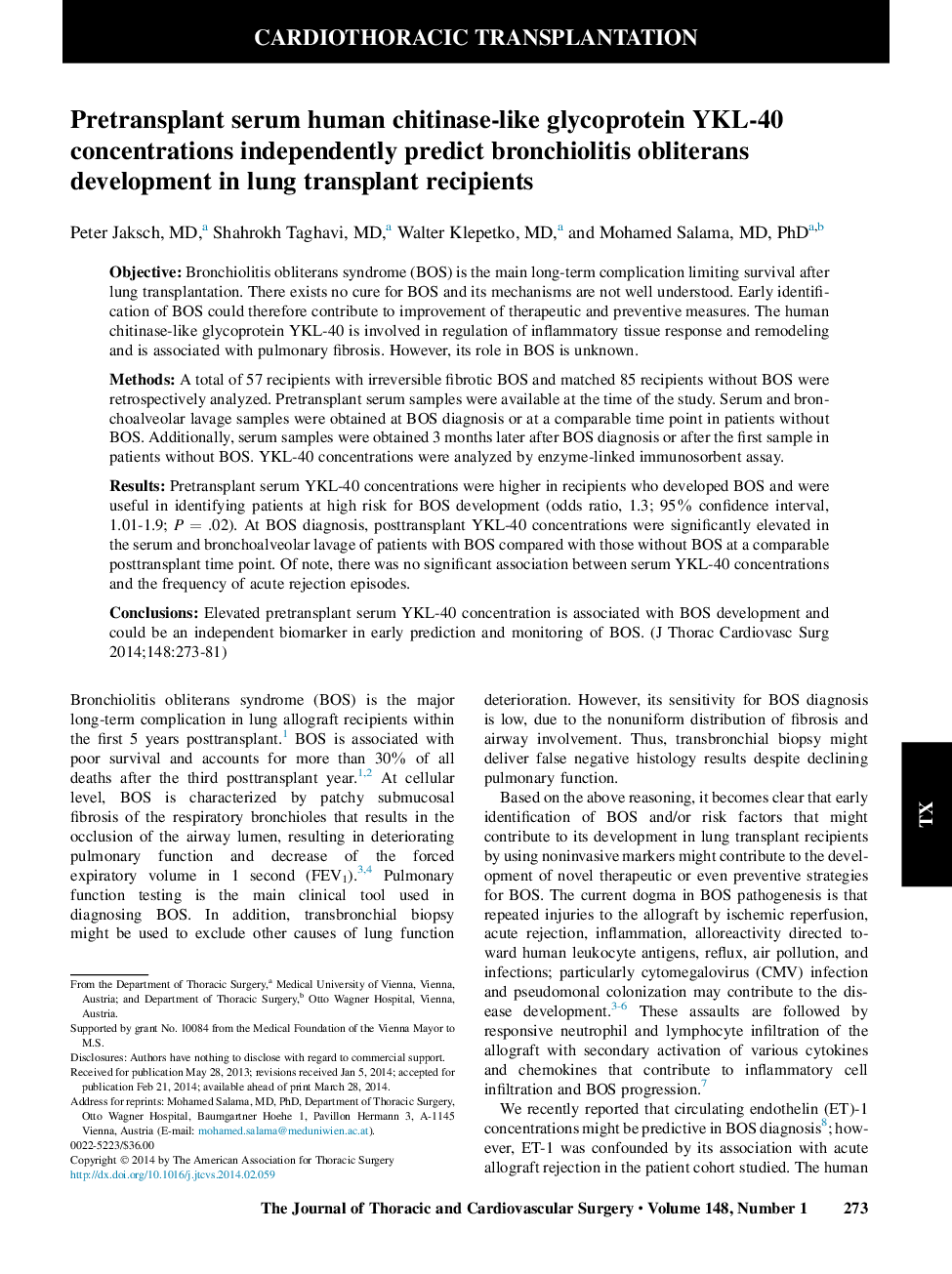| Article ID | Journal | Published Year | Pages | File Type |
|---|---|---|---|---|
| 2980777 | The Journal of Thoracic and Cardiovascular Surgery | 2014 | 9 Pages |
ObjectiveBronchiolitis obliterans syndrome (BOS) is the main long-term complication limiting survival after lung transplantation. There exists no cure for BOS and its mechanisms are not well understood. Early identification of BOS could therefore contribute to improvement of therapeutic and preventive measures. The human chitinase-like glycoprotein YKL-40 is involved in regulation of inflammatory tissue response and remodeling and is associated with pulmonary fibrosis. However, its role in BOS is unknown.MethodsA total of 57 recipients with irreversible fibrotic BOS and matched 85 recipients without BOS were retrospectively analyzed. Pretransplant serum samples were available at the time of the study. Serum and bronchoalveolar lavage samples were obtained at BOS diagnosis or at a comparable time point in patients without BOS. Additionally, serum samples were obtained 3 months later after BOS diagnosis or after the first sample in patients without BOS. YKL-40 concentrations were analyzed by enzyme-linked immunosorbent assay.ResultsPretransplant serum YKL-40 concentrations were higher in recipients who developed BOS and were useful in identifying patients at high risk for BOS development (odds ratio, 1.3; 95% confidence interval, 1.01-1.9; P = .02). At BOS diagnosis, posttransplant YKL-40 concentrations were significantly elevated in the serum and bronchoalveolar lavage of patients with BOS compared with those without BOS at a comparable posttransplant time point. Of note, there was no significant association between serum YKL-40 concentrations and the frequency of acute rejection episodes.ConclusionsElevated pretransplant serum YKL-40 concentration is associated with BOS development and could be an independent biomarker in early prediction and monitoring of BOS.
